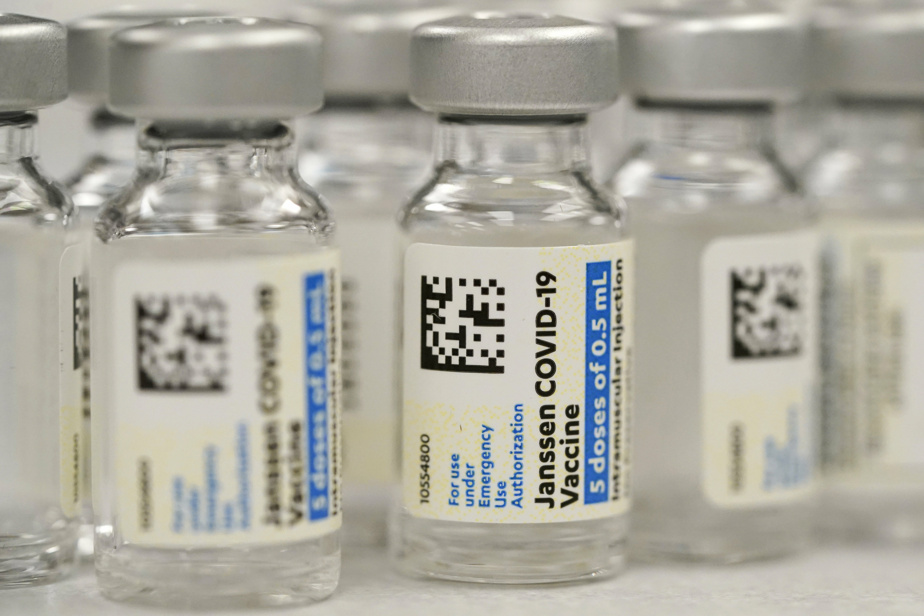(Washington) People who have received the COVID-19 vaccine from Johnson & Johnson may benefit from a booster dose of a different RNA vaccine, according to preliminary results of a US study released Wednesday.
This study, funded by the National Institutes of Health (NIH), has been eagerly awaited in the United States as it investigates the possibility of “mixing” vaccines – that is, using a different vaccine for the disease. Booster dose only for the initial series – which is currently not allowed in the country.
The study was conducted on 458 adults who had been vaccinated with one of the three approved treatments in the United States (Pfizer, Moderna or Johnson & Johnson), for at least 12 weeks.
These three groups were divided into three new groups, to receive in succession one of the three vaccines available as a booster dose. Thus, the nine groups in total consisted of about 50 people each.
The researchers then analyzed antibody levels 15 days after the booster was injected.
In people first vaccinated with Johnson & Johnson, antibody levels increased 4 times after a booster dose of the same vaccine, 35 after a booster dose of Pfizer, and 76 after a booster dose of Moderna.
The study notes that antibody levels for people first vaccinated with Moderna were higher each time compared to people first vaccinated with Pfizer or Johnson & Johnson, “regardless of the vaccine given for the booster dose.”
In addition, “No security issue identified” after managing reminders, was checked.
However, the study, which has not yet been peer-reviewed, has several limitations.
First, the booster dose of Moderna was 100 mcg, which is double what the company is already envisioning for its booster dose.
In addition, the number of participants was reduced, and the immune reaction could develop, after the 15 days observed here.
“It’s important not to get caught up in these findings,” Peter Hotez, a professor at Baylor College of Medicine, warned on Twitter. He noted that the results of trials with a second booster dose of “J&J” conducted by the same company over a longer period were “impressive.”
The NIH study should, however, feed discussions of an expert panel from the US Medicines Agency (FDA), which should consider authorization applications for a booster dose of Moderna and Johnson & Johnson, on Thursday and Friday, respectively.
The use of a Pfizer booster vaccine is already permitted in the country for certain populations.

“Extreme twitteraholic. Passionate travel nerd. Hardcore zombie trailblazer. Web fanatic. Evil bacon geek.”

